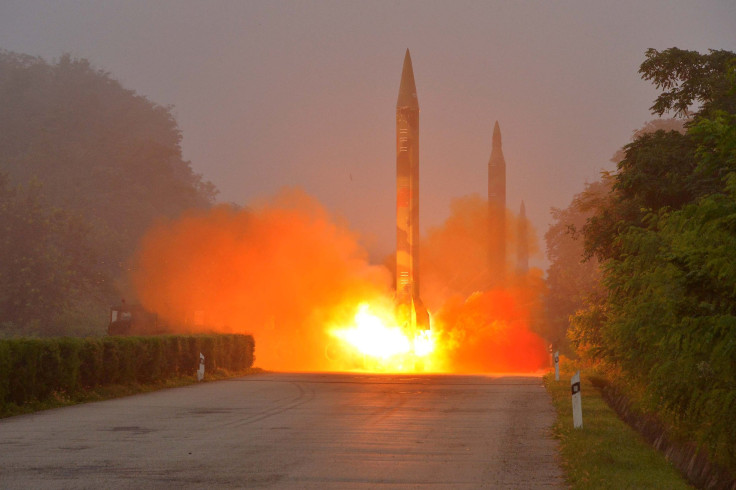US Envoy Hits Back At Suggestion US Provoked North Korea

U.S. Ambassador to the United Nations, Samantha Power, hit back on Wednesday at suggestions that a United States decision to deploy an advanced anti-missile defense system in South Korea had provoked recent ballistic missile tests by North Korea.
Pyongyang's ally China has said Washington's decision last month to deploy a Terminal High Altitude Area Defense (THAAD) system would only worsen tensions on the Korean peninsula. North Korea threatened a physical response to the deployment decision.
Speaking after the U.N. Security Council met on North Korea's missile launch on Wednesday, which landed in Japanese controlled waters for the first time, Power said the anti-missile system was to defend against the threat by North Korea.
"Any notion that there's some predicate by anybody other than Kim Jong Un and the DPRK (North Korea) regime is not grounded in reality and it's not grounded in history," Power told reporters after the closed-door meeting, in reference to the North Korean leader.
China's U.N. Ambassador Liu Jieyi said that nothing should be done to exacerbate tensions on the Korean Peninsula.
When asked what could be done to de-escalate the situation, he said: "If you look at the factors contributing to the tension in the Korean peninsula I think the answer is self-evident."
The 15-member Security Council met at the request of Japan and the United States following the latest in a series of launches by isolated North Korea in defiance of Security Council resolutions.
"The missile landed within Japan's exclusive economic zone. There was no warning whatsoever," Japan's U.N. Ambassador Koro Bessho told reporters. "It is certainly a major, major problem for the security and safety of our region."
South Korea's U.N. Ambassador Oh Joon said that this year North Korea had conducted 13 rounds of ballistic missile tests, firing 29 various rockets.
"They are doing all of this with a systematic, comprehensive purpose of upgrading and refining their missile technologies," he told reporters. "It poses a clear and present danger to the security of all countries in the region."
Power said she believed the Security Council could swiftly issue a condemnation. Council statements have to be agreed by consensus and previous condemnations of North Korea missile launches have taken days or weeks.
United Nations Secretary-General Ban Ki-moon is "deeply troubled" by North Korea's recent missile launches, his spokesman said, calling on Pyongyang to "reverse its course."
© Copyright Thomson Reuters 2024. All rights reserved.





















